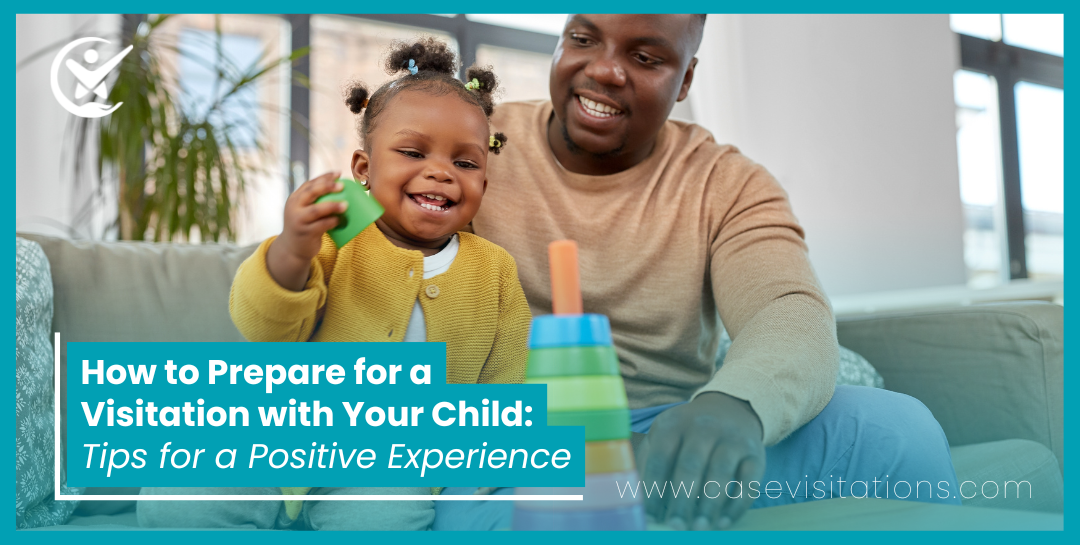How to Prepare for a Visitation with Your Child: Tips for a Positive Experience
Navigating court-ordered visitations can be challenging for both parents and children. At CASE Visitations, we understand the importance of making each visit a positive and meaningful experience. Proper preparation can set the tone for a successful visitation, helping to create a supportive and nurturing environment for your child. Here are some tips to help you prepare for your next visitation.
1. Understand the Guidelines and Expectations
Before the visitation, familiarize yourself with the specific guidelines set by the court and the visitation supervisor. Understanding these rules will help you avoid any misunderstandings and ensure a smooth visit. If you have any questions or concerns, don’t hesitate to reach out to your visitation supervisor for clarification.
2. Plan Age-Appropriate Activities
Children thrive on routine and predictability. Plan activities that are age-appropriate and enjoyable for your child. Whether it’s a simple craft, a board game, or reading a favorite book together, choosing activities that align with your child’s interests can help create a relaxed and engaging atmosphere.
3. Prepare Emotionally
Visitation can be an emotional experience for both you and your child. Take some time to mentally prepare yourself for the visit. Focus on being present and attentive during your time together. It’s also important to manage your own emotions, as children can easily pick up on stress or tension. Approaching the visit with a calm and positive attitude will help your child feel more at ease.
4. Communicate Positively
Effective communication is key to a successful visitation. Use positive language and keep the conversation focused on your child. Avoid discussing sensitive topics such as legal issues or conflicts with the other parent during the visit. Instead, ask open-ended questions that encourage your child to share their thoughts and feelings.
5. Respect Your Child’s Boundaries
Every child copes with visitations differently, and it’s important to respect your child’s boundaries. If your child seems hesitant or withdrawn, give them space and time to adjust. Let them take the lead on activities and conversations, and be patient as they navigate their own emotions.
6. Bring Comfort Items
If allowed, consider bringing along items that provide comfort to your child, such as a favorite toy, blanket, or book. These familiar objects can help ease any anxiety and make the visit feel more like a continuation of their everyday life.
7. Be Punctual and Reliable
Being on time and consistent with your visitation schedule demonstrates your commitment to your child. It also helps build trust and stability, which are crucial for maintaining a strong parent-child relationship. If an unforeseen circumstance arises that may affect the visitation, communicate with the supervisor as soon as possible.
8. Reflect on the Visit
After the visitation, take some time to reflect on how it went. Consider what worked well and what could be improved for future visits. This self-reflection can help you make adjustments and continue building a positive experience for both you and your child.
Final Thoughts
Preparing for a visitation with your child is about more than just showing up; it’s about creating a safe, supportive environment where your child feels valued and loved. By following these tips, you can help ensure that each visitation is a step toward building a healthy, positive relationship with your child.
At CASE Visitations, we’re here to support you every step of the way. If you have any questions or need additional guidance, don’t hesitate to reach out to our team. We’re committed to helping families navigate the challenges of court-ordered visitations with compassion and professionalism.





